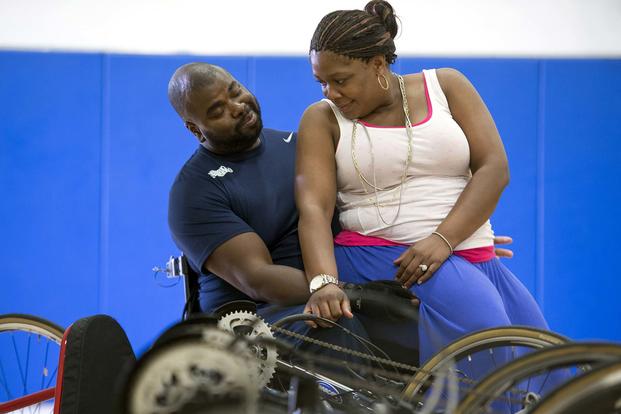Officials with the Department of Veterans Affairs are looking for in-depth feedback from caregivers as part of a continuing review of a program that gives cash stipends to some families.
Known as the Program of Comprehensive Assistance for Family Caregivers (PCAFC), it provides a monthly stipend of up to $2,500 to caregivers of qualifying post-9/11 veterans, depending on the veteran's needs and location.
VA officials ordered an extensive review of the program in spring 2017, which led to a series of changes, including a directive to VA hospitals nationwide to fix administration inconsistencies, which had been a top complaint among caregiver advocates.
Now, VA officials are seeking public comment that they say will allow for even more consistency in how the program is used nationwide and who is permitted to join.
There are about 1.1 million post-9/11 family caregivers in the U.S., according to official estimates.
The public notice, published Jan. 6 in the Federal Register, asks commenters to specifically address eight multipart questions on portions of the program, including who should be eligible, how that eligibility should be determined and when it should be revoked.
"This notice requests information and comments from interested parties to help inform PCAFC of any changes needed to increase consistency across the program, as well as ensure it supports those family caregivers of veteran service members most in need," the notice says.
Officials with caregiver groups said the register posting and questions it asks represent months of work between the VA and advocates, adding they are pleased with how thorough the questions are, as well as the topics addressed.
"That this comment period is happening is because we want people … to speak up and share the stories of inconsistency and disparity in their region," said Steve Schwab, executive director of the Elizabeth Dole Foundation, which advocates for veteran caregivers.
Schwab said the comment period, which closes Feb. 5, should be seen by caregivers of all eras as a chance to weigh in on the issues that impact them most -- even if they aren't directly addressed in the questions included in the register notice.
"I think people need to voice the concerns and answer the questions they want to answer," he said. "I think it's great that they were well thought out and thoughtful questions to guide people's feedback, but we also don't want that to be [a] barrier for people to provide feedback."
Among the topics addressed is eligibility for caregivers who leave the veteran due to domestic violence, a focus issue for advocates with the organization Healing Household Six.
Currently, a spouse who is no longer caring for the veteran does not qualify for the stipend, regardless of why he or she left the home. Advocates with Healing Household Six instead want the VA to extend that money as a source of transitional income for 90 days if a spouse leaves due to abuse.
"Should the VA continue providing benefits to a family caregiver who requests revocation due to an unsafe environment created by a veteran, such as an instance involving intimate partner violence committed by a veteran? How long should the benefits be continued under such circumstances?" the register notice asks.
Including that issue is a sign that the VA is continuing to take examining this program seriously, said Megan Fox Moseth, a Healing Household Six board member.
"I think that it shows an honest effort to really hear us, which is kind of a first," she said. "I really do earnestly believe that this is an honest effort to gather information and change the system accordingly."
-- Amy Bushatz can be reached at amy.bushatz@military.com.












